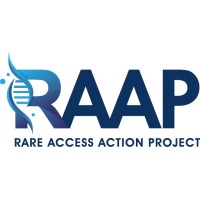
Rare Access Action Project (RAAP)
Many rare disease patients believe that because they have coverage (commercial, Medicaid or Medicare) that they will be able to utilize the medicine or technology that was developed for their rare disease. Unfortunately, this is not always the case. After rounds of prior authorizations and appeals, patients are often left with uncertainty. Many advances have been made, with significant advances in rare disease treatment on the horizon. However, the health care system in the United States has been slow in making those advances available to patients. The Facts: -Rare diseases individually affect small numbers of patients, collectively they affect as many as 25 million Americans – making this a serious public health concern. -An orphan disease is defined as a condition that affects fewer than 200,000 people nationwide. -There are over 7,000 known rare diseases and over 50 percent of rare diseases affect children. -During the first 25 years of the Orphan Drug Act (passed in 1983), 326 new drugs were approved by the FDA and brought to market for all rare disease patients combined. -Rare diseases account for 35% of children’s deaths in the first year of life. RAAP began in 2017 as an ad hoc coalition of life sciences and patient stakeholders focused on advocating for solutions to rare disease access to health care. The organization has evolved and is now a non-profit that is engaged in ongoing initiatives on both the Federal and State levels. RAAP is committed to exploring policy solutions to address structural issues in access and coverage and will engage with research, public education, issue advocacy, and lobbying activities to shine a light on the challenges facing rare disease patients; and offer common sense solutions to them. Current Projects: -State Educational Partnership with NCSL -Medicare Part D -Medicare -State Reinsurance Project RAAP is led by Michael Eging - 25 years as a life sciences professional and 12 years advocating on rare disease issues.






